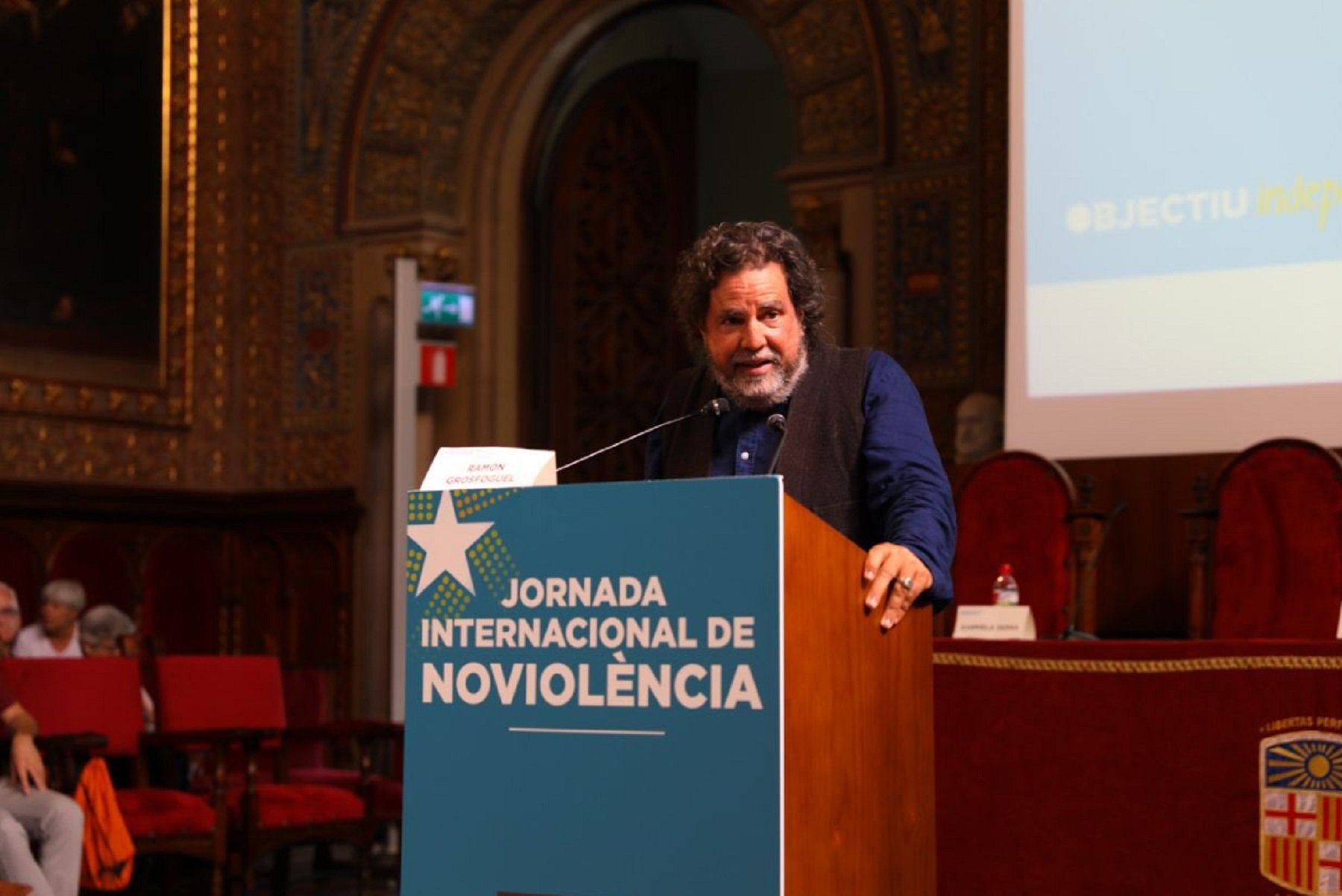Sociologist and professor at UC Berkeley, Ramón Grosfoguel, has told a Barcelona audience that he believes "Catalan society won't give in, despite being subject to blackmail." However, Grosfoguel, an expert on decolonization and well-versed in the current Catalan situation, believes the Catalan independence process has a problem of leadership and strategies, which have conflicting objectives.
In a lecture this Saturday at the University of Barcelona in the International Non-violence Seminar organized by the ANC (Catalan National Assembly), Grosfoguel called for civil disobedience to be used in the Catalan case but warned of the need for it to have "a specific goal" and "to know what it is aimed at." For the professor, the objectives of the civil disobedience must appeal to the transversal nature of the movement. "The need is to maintain the spirit of the 1st October referendum and fight jointly for the shared objective, without pointless partisan disputes," he said.
⬛️⬜️🔴 @ProfGrosfoguel 👉Malgrat els xantatges, la societat catalana no acceptarà la rendició. Però hi ha un problema de lideratges i estratègies, que apunten a objectius diferents. I per aplicar la desobediència civil amb èxit cal un objectiu concret, saber què es vol. pic.twitter.com/7PYLu9qrRe
— Assemblea Nacional 🧭 (@assemblea) September 28, 2019
This disobedience, said the Puerto Rican sociologist, must be dynamic, intelligent, organized and non-violent, in order to achieve "a dignified solution" for Catalonia. He also encouraged citizens to approach their activism according to their abilities. "Let's divide the different tasks so that we are more efficient," he proposed, without waiting for "everything to come to us from the parties."
"It's about continuing active resistance, not re-grouping, not giving up and waiting 15 years more until the movement is stronger." It will come, he said, if the struggle is non-violent.
Grosfoguel offered the view that the Catalonia process has had two events that will last forever, on October 1st and 3rd, 2017 - the referendum, and the national stoppage two days later. "Meanwhile, the Spanish state and the parties of the regime maintain institutions that behave just as they did in the days of Franco, and the EU closes its eyes," he said.
"The state's response to self-determination has been repression, a misinformation campaign and a prefabricated court sentence. They want to associate independence and violence, also for what will come this October," said the Berkeley professor.
To confront the situation, he proposes abandoning political differences and forming a united liberation front. This is a way of standing up to a country whose acting prime minister "has not been capable of forming a pact" in a state which he thinks "has been unmasked".
"Even the Podemos party is a defender of the Spanish kingdom. If you want to exercise civil disobedience, it is essential to know the political panorama. Let's not fool ourselves. Any party that approves oppression, article 155, is a party of the extreme right", concluded Grosfoguel.

